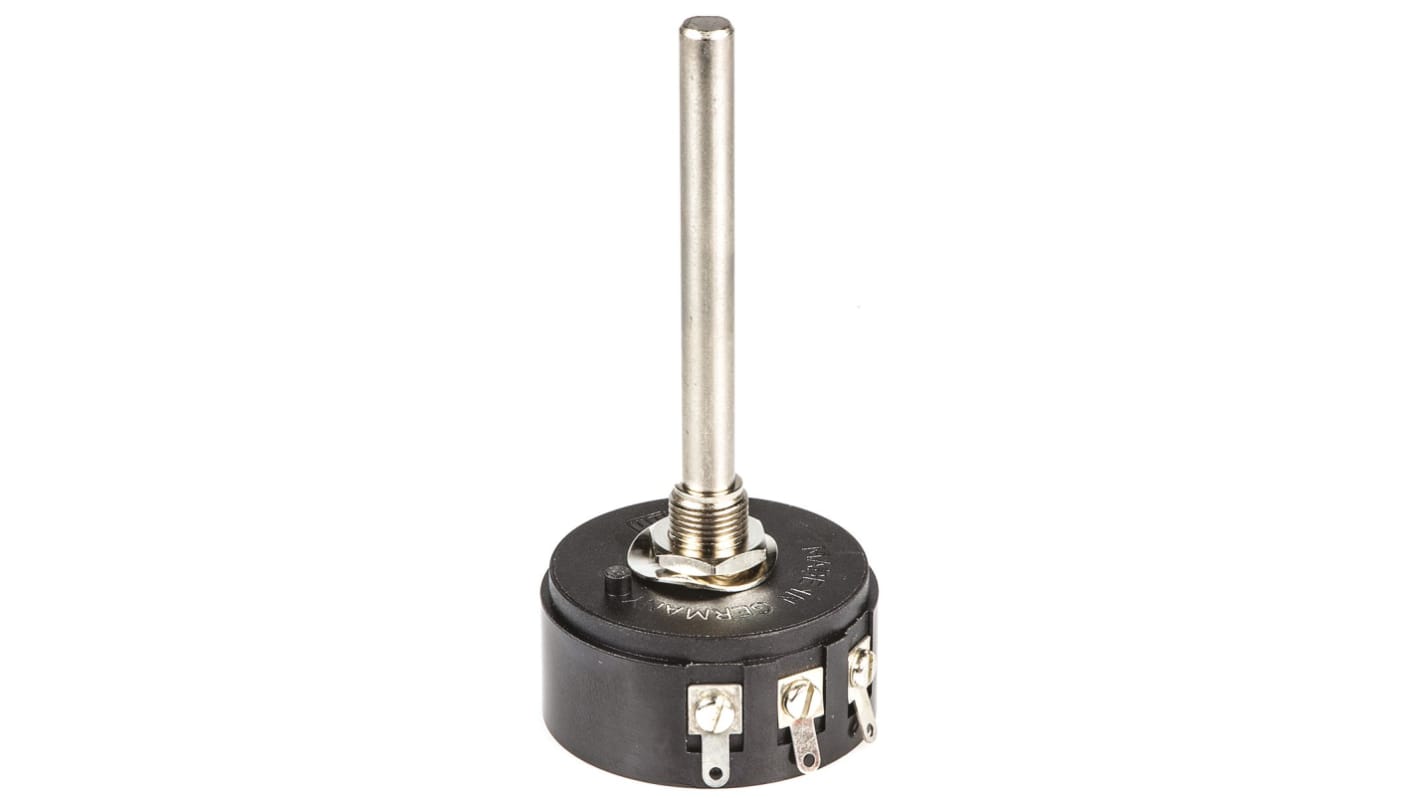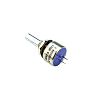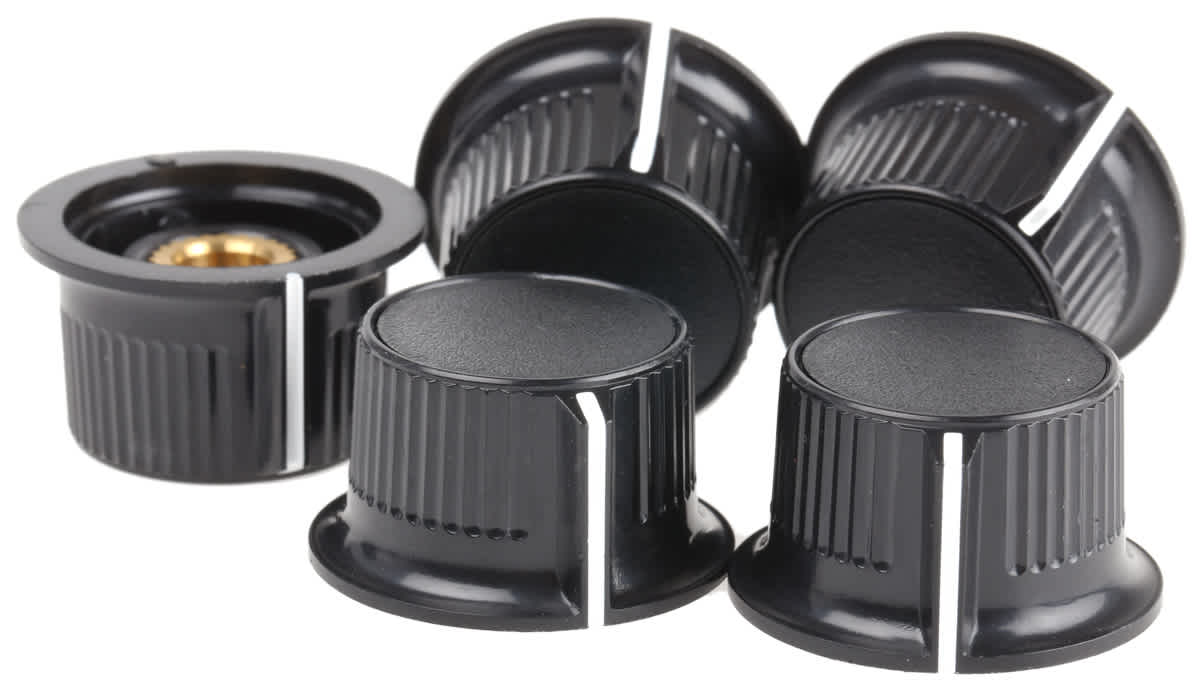Unavailable
RS will no longer stock this product.
Alternative
This product is not currently available. Here is our alternative recommendation.
Each
£23.48
(exc. VAT)
£28.18
(inc. VAT)
- RS Stock No.:
- 812-803
- Brand:
- RS PRO
Specifications
Technical Reference
Legislation and Compliance
Product Details
Find similar products by selecting one or more attributes.
Select all | Attribute | Value |
|---|---|---|
| Brand | RS PRO | |
| Potentiometer Type | Rotary | |
| Maximum Resistance | 500Ω | |
| Number of Turns | 1 | |
| Power Rating | 1.5W | |
| Electrical Taper | Linear | |
| Element Material | Wirewound | |
| Mounting Type | Panel Mount | |
| Termination Style | Solder Lug | |
| Shaft Diameter | 6.35 mm | |
| Tolerance | ±10% | |
| Actuator Type | Linear Shaft | |
| Series | CLR4000 | |
| Select all | ||
|---|---|---|
Brand RS PRO | ||
Potentiometer Type Rotary | ||
Maximum Resistance 500Ω | ||
Number of Turns 1 | ||
Power Rating 1.5W | ||
Electrical Taper Linear | ||
Element Material Wirewound | ||
Mounting Type Panel Mount | ||
Termination Style Solder Lug | ||
Shaft Diameter 6.35 mm | ||
Tolerance ±10% | ||
Actuator Type Linear Shaft | ||
Series CLR4000 | ||
- COO (Country of Origin):
- GB
RS PRO Wirewound Potentiometers - Long shaft
Brought to you by RS PRO, a series of rotary potentiometers suitable for various applications. Widely used within electronics, each model can be mounted within various devices or even on PCB applications. These particular models have a linear taper and will excel within audio or electronic uses. All models are highly reliable and excellent quality.
Features and Benefits
• Robust construction
• Long shaft style
• Low terminal resistance (0.2 Ω)
• Linear Taper
• Good linearity (1% typical)
• Long shaft style
• Low terminal resistance (0.2 Ω)
• Linear Taper
• Good linearity (1% typical)
What is a potentiometer?
A potentiometer is a variable resistor which increases or decreases the resistance in an application. Usually available as either digital or analogue, there are two main types of potentiometers, rotary and linear.
• Linear - comes in a rectangle strip shape and can be pulled up or down for the required resistance, Used a lot within sound systems for mic output or volume control.
• Rotary - the shaft is housed by a knob, you would find these on dimmer switches or speakers, turning (usually to the right) will increase the resistance amplifying the output, whether that is light, sound or voltage.
• Linear - comes in a rectangle strip shape and can be pulled up or down for the required resistance, Used a lot within sound systems for mic output or volume control.
• Rotary - the shaft is housed by a knob, you would find these on dimmer switches or speakers, turning (usually to the right) will increase the resistance amplifying the output, whether that is light, sound or voltage.
How do potentiometers work?
Used in various applications, potentiometers operate as a resistor for electronic devices. As an example, a dimmer switch you would find in place of a light switch would house a potentiometer. Whichever direction it is turned, either increases or decreases the resistance, manipulating the light output from the bulb. Another common use would be speaker or sound systems, operating as a volume switch. There are various types of element material, usually as rotary or linear, such as:
• Wire-wound
• Conductive
• Plastic
• Carbon
• Cermet
• Wire-wound
• Conductive
• Plastic
• Carbon
• Cermet
Supplied with
metal lock washer and nut
Related links
- TE Connectivity Citec Rotary Potentiometer Panel Mount, 1624130-2
- RS PRO 5kΩ Rotary Conductive Plastic Potentiometer Panel Mount
- RS PRO 1kΩ Rotary Conductive Plastic Potentiometer Panel Mount
- RS PRO 10kΩ Rotary Potentiometer 1-Gang Panel Mount
- RS PRO 100Ω Wirewound Potentiometer Panel Mount
- RS PRO 1kΩ Conductive Plastic Potentiometer Panel Mount
- RS PRO 25kΩ Wirewound Potentiometer Panel Mount
- RS PRO 5kΩ Wirewound Potentiometer Panel Mount




